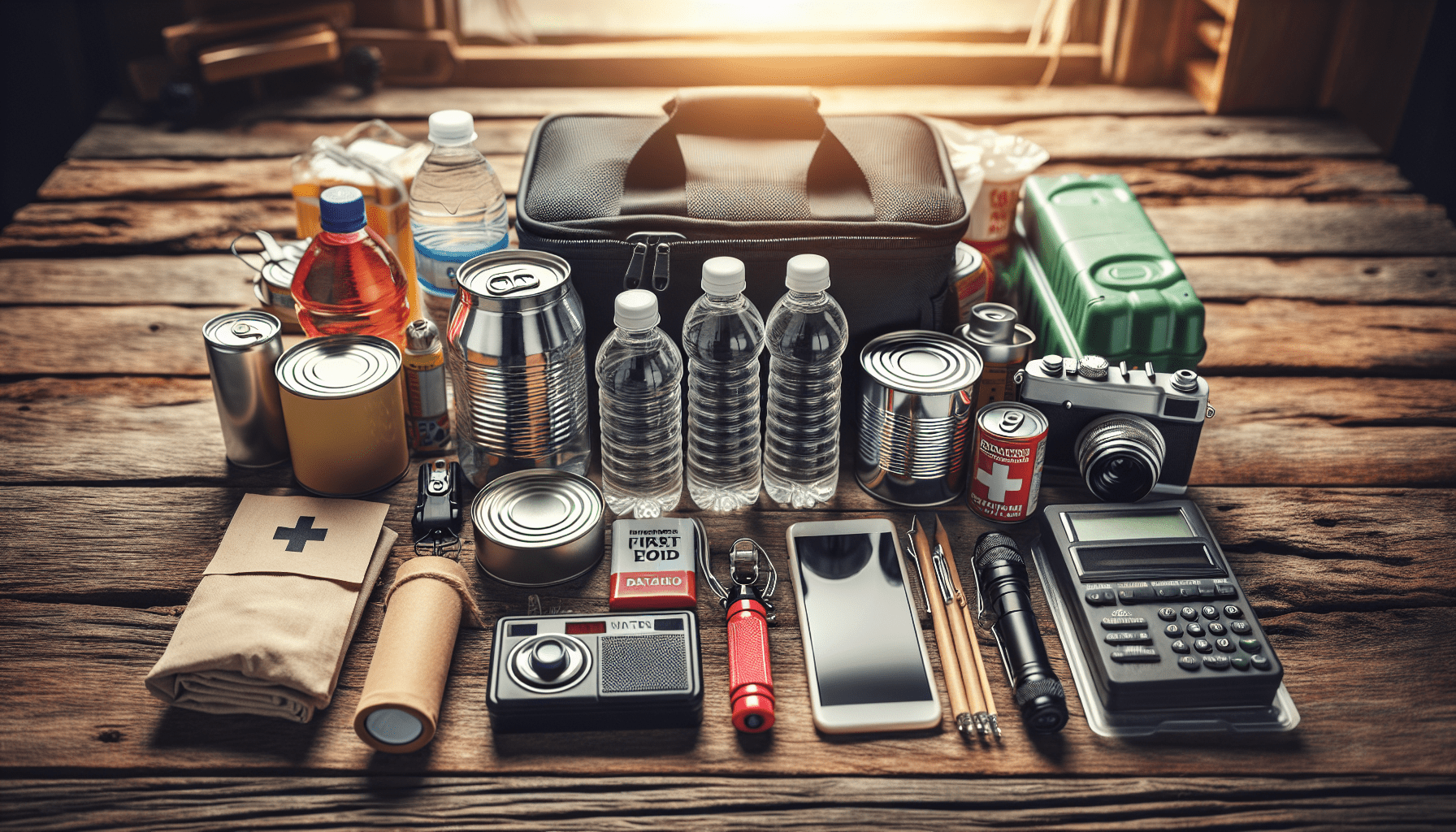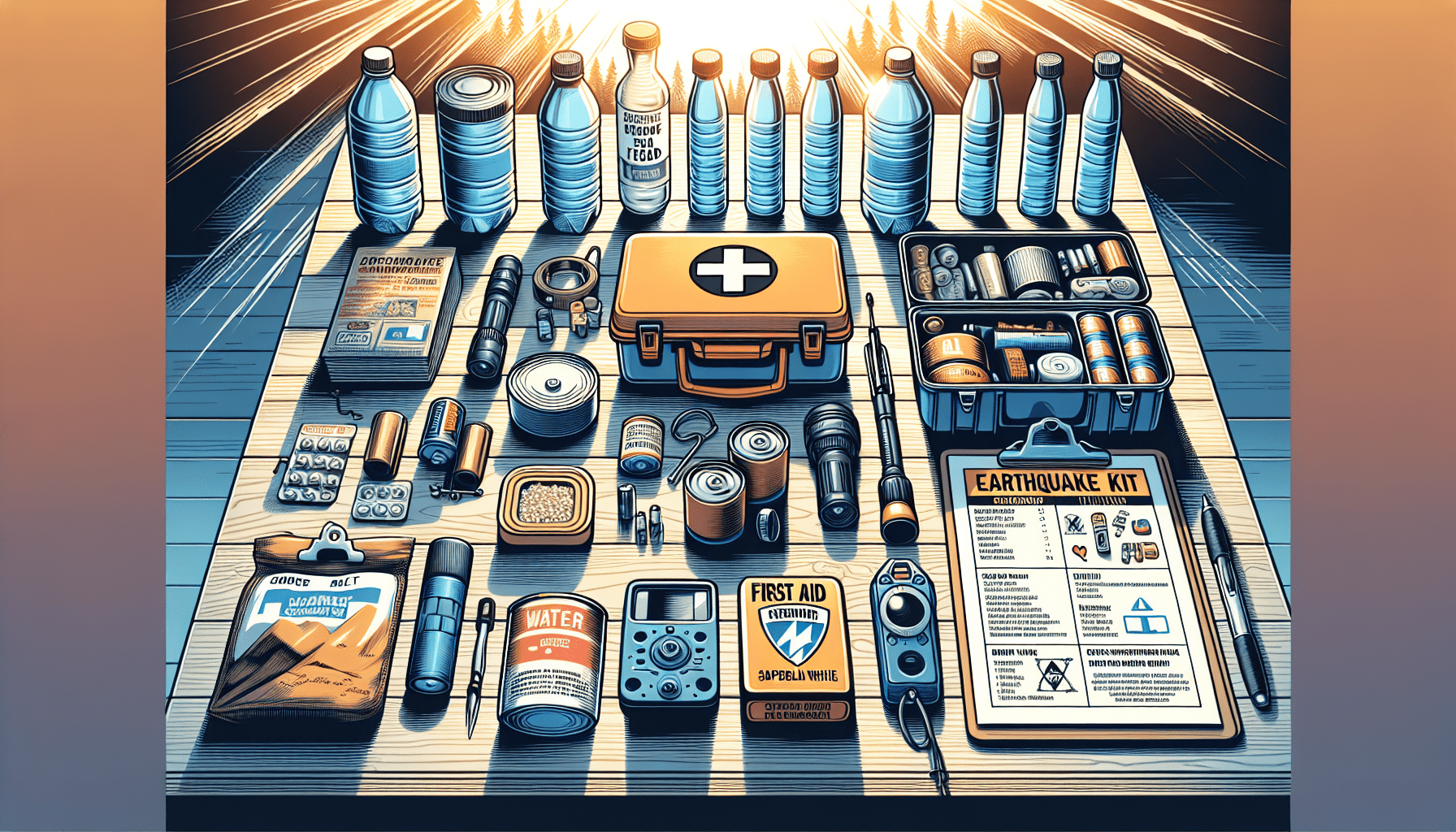When faced with a severe earthquake watch, it’s essential to act quickly and wisely to ensure your safety and the safety of those around you. First, secure heavy furniture and clear exits to prevent injuries from falling objects. Stay informed by monitoring local news and weather alerts for updates. Prepare an emergency kit with essentials like water, food, flashlight, and first aid supplies. Establish a communication plan with family or close friends, deciding how you will reach each other if separated. By taking these proactive steps, you enhance your readiness and resilience in the face of a potential earthquake. Have you ever wondered what you should do if there’s a severe earthquake watch? Earthquakes are one of nature’s most unpredictable and destructive forces, impacting millions of people across the globe every year. While predicting earthquakes precisely might still be a challenge, being prepared for the possibility isn’t. This article will guide you through the comprehensive steps and actions you should take if there’s a severe earthquake watch in your area. We’ll cover everything from pre-earthquake preparedness to what to do during and after an earthquake. Let’s make sure you’re as ready as can be!
What is a Severe Earthquake Watch?
A severe earthquake watch means that conditions are right for a possible earthquake of significant magnitude. Think of it like a heads-up that the ground might shake quite vigorously. While it’s a preliminary alert and not a guarantee of an earthquake, treating it with the seriousness it deserves is crucial.
Difference Between a Watch and a Warning
| Term | Definition |
|---|---|
| Watch | Indicates conditions are favorable for an earthquake but does not guarantee it will happen. Be prepared. |
| Warning | Indicates an earthquake is imminent, expected to occur, or already occurring. Take immediate protective action. |
Preparing for a Severe Earthquake Watch
Preparation is the key to ensuring your safety and minimizing risk. Here are some steps you should take as soon as you know you’re in an area with a severe earthquake watch:
Building a Disaster Supply Kit
You never know when an earthquake might strike, so having a disaster supply kit ready is essential. Your kit should include:
- Water: At least one gallon per person per day for at least three days.
- Food: Non-perishable food items to last at least three days.
- First Aid Kit: Bandages, antiseptic, pain relievers, and any prescription medications.
- Tools and Supplies: Flashlight, spare batteries, multi-tool, and a whistle.
- Personal Items: Extra clothing, sturdy shoes, important documents, and cash.
- Sanitation: Trash bags, moist towelettes, and sanitation wipes.
Creating an Emergency Plan
How can you and your family stay coordinated during an earthquake? Here are some components you should include in your emergency plan:
- Communication Plan: Determine what methods you will use to communicate and set a central contact person out of the earthquake zone.
- Meeting Point: Establish a safe, predetermined meeting place for your family.
- Evacuation Routes: Know multiple routes out of high-risk areas and practice them regularly.
- Emergency Contacts: Have a list of local emergency contacts and memorize key phone numbers.
Securing Your Home
Unsecured objects can turn into hazards during an earthquake. Here’s how to earthquake-proof your home:
- Anchor Heavy Furniture: Secure bookshelves, cabinets, and other tall furniture to walls.
- Secure Electronics: Use straps or brackets to secure TVs, computers, and other electronics.
- Inspect Utilities: Know how to turn off gas, water, and electricity in your home.
- Retrofit Older Buildings: If your home is older, have it inspected and retrofitted to withstand earthquakes better.
Understanding the Safe Spots in Your Home
Knowing where to take cover during an earthquake can make a big difference. Look for:
- Sturdy Furniture: Tables or desks you can get under.
- Inner Walls: Away from windows, on the lower floors of multi-story buildings.
- Designated Shelters: Outdoor areas free from power lines, trees, and other hazards.

What To Do During an Earthquake
When the ground starts shaking, your immediate actions can determine your safety. Here’s what you should do:
Indoors
- Drop, Cover, and Hold On: Drop to your hands and knees, cover your head and neck under sturdy furniture, and hold on until the shaking stops.
- Avoid Doorways: Contrary to popular belief, doorways are not the safest places to be.
- Stay Indoors: Do not run outside during shaking. You are more likely to get injured by falling debris.
Outdoors
- Get Clear of Hazards: Quickly move away from buildings, streetlights, and utility wires.
- Find a Safe Open Space: Once in an open area, drop to the ground and cover your head and neck until the shaking stops.
In a Vehicle
- Pull Over Safely: Stop in a clear area away from buildings, trees, overpasses, and power lines.
- Stay Inside the Vehicle: Keep your seatbelt fastened and stay put until the shaking stops.
Near the Ocean
- Tsunami Risk: If you’re near the shore, be aware of the potential for tsunamis. Move to higher ground immediately after the shaking stops if you hear a tsunami warning.
What To Do After an Earthquake
Once the shaking has stopped, the dangers aren’t necessarily over. Here’s what to do next:
Check for Injuries and Damage
Quickly assess your surroundings:
- Injuries: Check yourself and others for injuries. Administer first aid if needed.
- Damage: Inspect your building for structural damage. If your building appears unsafe, evacuate immediately.
Listen to News and Updates
Stay informed through reliable sources:
- Radios and Smartphones: Use battery-powered radios or smartphones to get updates.
- Emergency Services: Pay attention to local announcements about safety, services, and assistance.
Avoid Hazards
Be aware of potential dangers in your environment:
- Gas Leaks: If you smell gas, turn off the main valve and evacuate the area.
- Downed Power Lines: Stay away from fallen utility wires and report them to authorities.
- Structural Hazards: Avoid entering damaged buildings unless deemed safe by a professional.

Long-Term Preparedness
Being prepared is not just about immediate actions but also about long-term readiness.
Conducting Earthquake Drills
Regular practice can make a huge difference in how effectively you respond:
- Family Drills: Practice your emergency plan with your family, including Drop, Cover, and Hold On techniques.
- Workplace Drills: Ensure your workplace has drills and knows the emergency procedures.
Home Insurance
Earthquake insurance can help mitigate the financial impact:
- Review Your Policy: Make sure your homeowner’s insurance covers earthquakes or get a separate earthquake insurance policy.
- Document Valuables: Keep an updated inventory of valuables in case you need to make a claim.
Community Involvement
Being part of a community preparedness effort can amplify your readiness:
- Join Community Groups: Engage with local disaster preparedness groups.
- Volunteer: Contribute to community efforts, participate in local planning meetings, and help educate others.
Final Thoughts
Facing a severe earthquake watch can be intimidating, but with the right preparation and knowledge, you can significantly reduce the risks to yourself and your loved ones. By building a disaster supply kit, securing your home, creating an emergency plan, and understanding the safest actions to take before, during, and after an earthquake, you can be better equipped to handle this natural disaster. Stay informed, stay prepared, and stay safe!
By following these steps, you ensure you’re as ready as possible for whatever comes your way. Remember, preparation is the best protection against the unpredictability of earthquakes.

